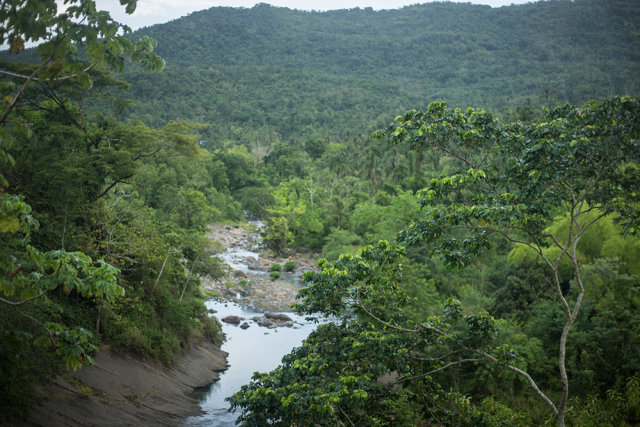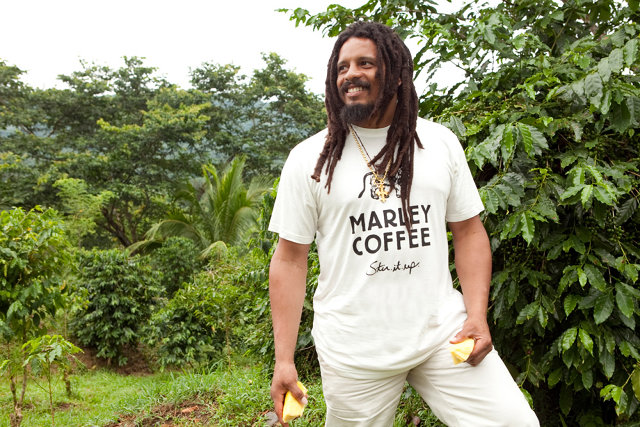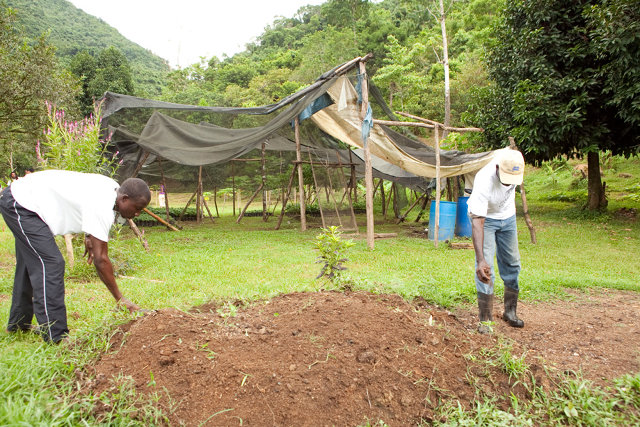As a 20-something looking for his purpose, Rohan Marley found it by going back to his roots.
ARE
Marley Coffee is still a relatively small company, having churned out $6 million in revenue in 2013. But founder Rohan Marley, one of Bob Marley's children, has big plans for his Jamaican-born coffee business.
In 1999, Rohan Marley was 27. He had played linebacker for the University of Miami before moving on to the Canadian Football League. Now he found himself in New York City, wanting to do more with his life--to make a name for himself as a Marley.
In a serendipitous twist, a friend contacted Marley about an opportunity to purchase a property in Jamaica. Though he'd only lived in Jamaica as a child before moving to the U.S. at age 12, Marley had recently received $200,000 in royalties from his father's music. So he made a trip to look at the property, and couldn't believe what he found.

"The first thing I saw was all the fruits--apple, starfruit, pineapple--tons of fruit growing wildly, and I was seeing all the food going to waste," he recalls in his thick Jamaican accent. "While I’m walking, I'm thinking, 'Wow, this land is really fertile.' When I approached the river, I couldn’t believe my eyes that this property was in Jamaica. Here’s this beautiful piece of property for sale--I thought it was a conspiracy."
On impulse, Marley forked over his $200,000 and bought the 52-acre property. As he was walking off the land, he noticed an entire community of people standing there, trying to figure out what he was up to. "The only thing I could think to say was, 'What’s the community known for?' They said coffee, and by the time they knew my name, I was saying, 'Well alright, the community is known for coffee, so let’s get down to specifics,'" he says. "My next question: 'Do you know anything about coffee? They said, 'Yes, Mr. Marley, we’ve been farming all our lives.'"
It didn't take long for him to decide that he wanted to start a coffee business--one that was emphatically organic. "I’m a Rasta man, and I can’t have a piece of land that isn’t something I want to eat from," he explains.
It was a long haul from Marley's initial coffee-growing idea to creating a functional business. Marley spent eight years applying for an export license, organic certification, and a coffee-growers license. The learning curve was steep.
"I gave my coffee to a roaster in Jamaica--I gave him 1,000 pounds--and he never returned the bag. He said it was all bad coffee," Marley remembers. "I decided this wasn't working for me. I told the farmers, 'Take all the raw materials, sell it, do what you need to do to keep the farm going.'"
Between 2004 and 2006, Marley helped his sister start a clothing company, which eventually ran out of money and shut down. Marley once again needed to reevaluate his life. He packed two duffel bags and headed to Ethiopia.

When he observed that Starbucks was buying coffee from the country, he had an idea. "I'm like, wait a minute, Starbucks is sourcing coffee from all over the world--why do I have to stick to my country Jamaica when Jamaican coffee is so expensive?" he says. "We're not trying to just appeal to a niche market"
It was there, in Ethiopia, the birthplace of coffee, that Marley decided to rekindle his business. And once the learning curves were overcome, it turned out that Marley's land was able to produce some high-quality Jamaican Blue Mountain coffee.
Jammin Java, the corporation behindMarley Coffee, was created in 2009--right around the time that now-CEO Brent Toevs approached Marley about becoming a distributor. Once he learned more about the company, Toevs--a former partner atNational Coffee Service & Vending--decided that he could make an impact from the inside. A year and a half ago, Marley Coffee finally began selling its high-end coffee products, which come with Bob Marley-inspired names like One Love, Lively Up!, and Get Up, Stand Up. In addition to beans, the company sells ground coffee and single-serve cups.
"We have a distinct advantage: that [Rohan] did it right, from the roots. His company started as a coffee farm, learning the coffee business from growing coffee," says Toevs.
Today, Marley Coffee still produces coffee from those 52 acres in Jamaica, but the product is expensive and there is a limited supply. The company now also buys coffee from other countries including Ethiopia. "It's the coffee we purchase most of. It's in almost all of our blends," says Toevs.

On the farm that Marley owns, it's easy to ensure that the coffee is pesticide-free and that farmers are treated well. Doing the same on other farms requires more effort. According to Toevs, Marley Coffee teaches farmers on partner farms how to adhere to its sustainable farming practices. The company purchases all of its coffee--which is all either organic orRainforest Alliance certified--from fair-trade co-ops.
There have been challenges as the company scales up, from $37,000 in revenue its first year, to a projection of over $10 million this year. "With any new brand come those challenges--financial, getting it on the shelf, making sure consumers take it off the shelf. Our challenges are typical challenges of any startup brand. We're going into a very competitive channel," says Toevs.
Marley Coffee is in the midst of expanding its product lines into grocery stores, both domestically and internationally. In the near future, the company plans to expand further into the single-cup space. It's also looking at the possibility of selling cold coffee drinks.
"You’re going to see Marley Coffee in higher-end hotels, in good restaurants," Toevs predicts. "We think we can get there."
 RSS Feed
RSS Feed Twitter
Twitter



 11:14
11:14
 Unknown
Unknown





0 comments:
Post a Comment